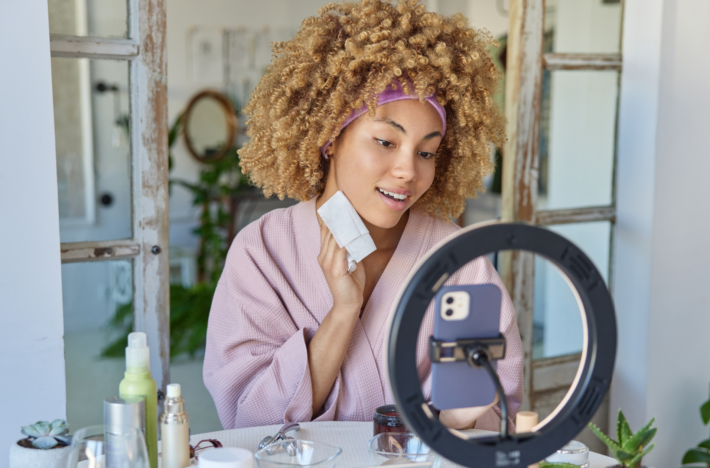In today’s dynamic digital landscape, social media platforms have become a multipurpose spectrum where individuals can get everything from national news to the latest trending beauty products. Influencer marketing has emerged as a powerful force shaping consumer behavior and brand strategies. The intersection of technology and social influence has given rise to a new era in marketing, where individuals with significant online followings hold the key to reaching and engaging millions of people in some cases.
As we delve into the realm of influencer marketing, it’s essential to explore its pros and cons, how influencer marketing has changed over time, strategies brands are implementing, and whether brands should be incorporating influencer marketing into their marketing budgets.
Influencer Marketing: Pros and Cons
There are equally as many pros to influencer marketing as there are cons. Brands must weigh whether or not they should be investing more time and money into their influencer marketing strategy. The initial investment may potentially be small, but the return on impressions, engagement, and eventually conversions should ideally surpass partnership fees. For the Gen Z audience, influencers are their main source of truth when it comes to where to get the best products for various categories, offer the best tips, and make an overall powerful impact on the purchases they ultimately make – aka what we used to know as “word-of-mouth” marketing.
More than ⅓ of Gen Z customers have purchased products based on an influencer’s social media content. However, a notable drawback that’s been gaining traction revolves around the perceived lack of authenticity in promoted content. The key lies in seamlessly integrating promotional material, a practice that has garnered positive responses from audiences as seen in the engagement. In essence, it becomes imperative for brands to collaborate with influencers whose message, audience alignment, and overall synergy align with their own values.
The Evolution of Influencers
Over the last 10 years or so, influencer marketing has changed in many ways. Early collaborations were based on personal relationships between brands and content creators on various platforms, including blogs. Surprising personal collaborations often yielded the best results, captivating audiences with unexpected connections. The element of surprise, stemming from previously unknown associations, generated considerable buzz around these collaborations.
As these collaborations gained traction, influencers began to see their value in the amount of engagement and impressions their partnership content received. They developed media kits, set prices, and established guidelines. Brands saw the impact this had on sales, and they began to understand the value partnerships brought to their business – and so they began to carve out influencer marketing and brand partnership budgets.
What to Consider with an Influencer Marketing Strategy
Choosing the right type of campaign, message, and influencer partnership is essential to a successful collaboration on either end. Partnering with an influencer who can effectively communicate your brand’s message while maintaining authenticity with their own voice and identity is crucial. This is especially important as a significant number of individuals consuming advertising content tend to avoid posts that appear overly promotional or lack a seamless integration. It plays better when followers don’t even notice ad content on platforms such as TikTok and Instagram.
Before diving into any sort of influencer marketing strategy, you must define your brand’s target audience and goals, and find a personality to mesh well with these. Collaborations now more than ever need to be genuine and seamless to elicit better engagement and increased brand awareness to lead to conversions.
So, is Influencer Marketing Right for Your Brand?
Does every brand need to utilize or include influencer marketing in their overall brand marketing strategy? The short answer is no. As with all aspects of marketing, it depends on the brand, your goals, and your audience.
And, you have to understand that this strategy is often part of a long game. An initial surge in results may diminish over time, especially in the ever-changing and fast-evolving social media landscape.
Influencer marketing is all about building sustainable success over time. Take charge by optimizing your strategies and allocating your resources. But don’t let perceived cost or workload prevent you from exploring influencer marketing. It doesn’t have to be expensive, and you’d be surprised at just how well the right micro-influencer can work for your audience vs. vying for the attention of a major personality.
Ultimately, you want to focus on getting your product into the hands of someone who has an audience and can authentically weave your brand, your product, and your messaging into their lifestyle.
Ready to get started? Reach out to us to explore strategies that make sense for your brand.


